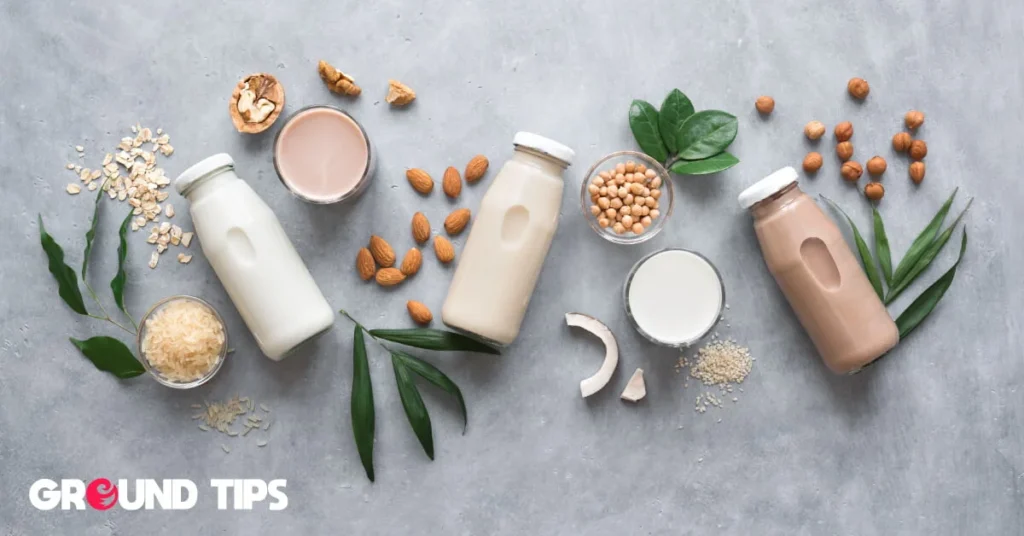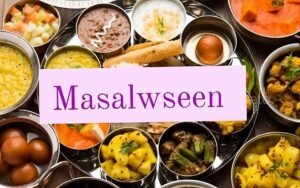The Power of Organic Living: Comprehensive Guide to

https://hunterposts.com/
Oganic living is what goes beyond being a trend or a gimmick, but rather signifying an actual way of life that involves natural processes with capability to sustain our living and/or exist as well as possible healthy ways. This concept relates to nearly all the facets of life, ranging from the diet we take to products we take and even influence the manner we deal with our atmosphere. Cognition ỏganic of the primary concept of ỏganic living enables the coordination of decisions that promote the best aspects of living between the individuals and the atmosphere.
What does ỏganic mean?
The term ỏganic means that the opposite product has been grown and processed without using chemicals, GMOs or synthetic additives. The biodynamic farming system practices respect soil, animals and the earth space with the plants. They are aimed at maintaining and improving the quality and conditions in the environment as well as the organisms that exist in it.
Organic farming practices
Organic farming has its origin embraced in the concept of biological methods ỏganic of soil fertility and other aspects of ecology. Key practices include:
- Crop Rotation:
- This entrails a switch over of the type of crops cultivated in given region in a bid to enhance fertility of the ground and at the same time preventing build up of pests and diseases.
- Composting:
- Further, organic farmers also use composting to convert ỏganic waste into a source of nutrients for the soils.
- Biological Pest Control:
- In compound with this, while chemical pesticides are used in normal farming, ỏganic farmers rely on birds and other insects to help in controlling pests.
Benefits of Organic Food
The decision to buy ỏganic food is indeed an advantageous one in more ways than one since it not only remains good for the individual’s health ỏganic but also for the environment and producers. Here are some of the key advantages:Here are some of the key advantages:
Health ỏganic Benefits
-
Nutrient-rich:
An organically grown food can have enhanced, improved, and more easily digestible vitamins and minerals such as antioxidants than foods that are produced through conventional farming.
-
No Synthetic Chemicals:
Organic food is not produced through the use of synthetic pesticides and fertiliser – which means that people are not in contact with many dangerous chemicals.
-
Better Taste:
A great majority of individuals have reported that ỏganic grown foods have better tastes compared with those that are usually grown with the use of chemicals.
Environmental Benefits
-
Soil Health:
Using ‘_spaces’ that are organic ỏganic farming practices, Soil fertility and structure increases and hence longevity of the farming industry.
-
Biodiversity:
Maintenance of diverse range of plants and animals tends to be higher on the organic farms, making them have more diversity.
-
Reduced Pollution:
The use of artificial chemicals in farming is minimized or eliminated in organic farming, therefore helping to decrease the amount of pollutants in water systems and land.
Economic Benefits
-
-
Support for Local Farmers:
The positive environmental impact of buying organic is that it fosters localized farming and small business.
-
Market Growth:
The growth of the market also plays a driving force as it increases the demand for organic products and hence forces farmers to adopt organic farming.
-
-
Organic Products Beyond Food
Although people think that the organic food is the most famous type of the organic living, this is not the only direction of the life. Everything starting from clothes to accessories and even washing soap is labeled organic to show that it is natural and is made in a safe way.
Organic Clothing
Organic clothing is clothing that has been manufactured using natural fibres such as cotton, wool and hemp fibre that is grown naturally, not using synthetic pesticides or inorganic fertilizers. Benefits include:
- Eco-Friendly:
- The main advantage of organic fibres is that they are of natural origin, completely biodegradable, which in turn significantly reduces their impact on the environment.
- Healthier:
- Organic fabrics are breathable fabrics than those fabrics which are produced from chemicals that cause skin irritation.
- Ethical:
- It is also important to note that many other organic clothing companies are equipped to support fair trade and ethical working conditions.
Organic personal care products
Organic personal care products entail products ranging from shampoos, lotions, cosmetics and manufactured through organic means. These products offer:
- Chemical-Free:
- No synthetic perfume or artificial ỏganic color or preservatives added to it.
- Skin-Friendly:
- gentle that it is in its contact with the skin thus minimizes chances of causing skin reactions like rashes and allergies.
- Sustainable:
- they being normally packed in environmentally friendly material and made with the least pollution of the environment.
Challenges of Organic Living
On balance, the benefits of organic living are enormous but inevitably comes with those challenges as has been highlighted above. By realizing these challenges present in the market it is easier for anybody to make better decisions while functioning in the organic market.
Higher Costs
This has made production of organic products expensive as compared to those that are not organic products. This is due to several factors:This is due to several factors:
- Labour-Intensive Practices:
- Organic farming and production mostly take longer time with lesser automation methods incorporated as compared to conventional farming.
- Lower Yields:
- Higher yields in organic farming are usually a mirage; that is why the prices of crops from organic farming tend to be high.
- Certification Costs:
- Mention that certification of an ỏganic product entails invasive evaluations and extensive documentations that increase overall costs.
Accessibility
Sometimes ỏganic products are less available than ganic produced ones due to the scarcity of distribution. However, some people may not be able to afford these products or get an organic products provider hence cannot be able to embrace the idea completely.
Misleading Labels
In its sense, not all products that are branded with the word ‘ỏganic’ have the same quality. People should know the certification regime and seek for the well-acknowledged standards as USDA ỏganic, EU Organic, or the similar ones in the other counties.
How to Begin With the Organic Lifestyle
The shift to living a completely organic lifestyle is not as hard as people think it should be. Here are some practical tips to help you get started:Here are some practical tips to help you get started:
Start Small
First, try to make the change gradually by using a few organic foods in your daily life like replacing regular fruits and veggies with organic ones or buying organic beauty products.
Educate Yourself
Discover the various types of certification companies can get for their ỏganic foods and the requirements that come with each. It is, therefore, important for consumers to have an understanding of the labels and certifications in a bid to come up with more informed decisions when purchasing these products.
Support local farmers.
Eat ỏganic food and purchase locally produced food from farmers and food vending markets. This is not only has an added benefit in terms of the acquisition of fresh and pesticide-free foods but also has the positive impact on local economies.
Grow your own
If at all possible, you should start with a conservatory ỏganic garden at your workplace. Homemade gardening for herbs, vegetables and fruits is fulfilling and can help deliver fresh ỏganic foodstuffs right to the doorstep.

Conclusion
Organic living is an eco-philosophy that involves the physical, emotional, mental and spiritual wellbeing, and fostering of environmentally conscious processes. Like in every occupation, it has its stipulations, but the outcome surpasses the struggle of individuals as well as in the community. In other words, everybody could learn from organic living and gradually make improved decisions and practice for a brighter future.







